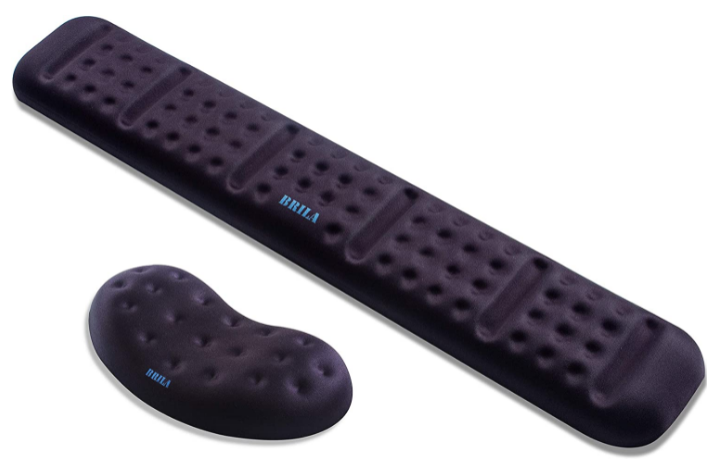Top & Best Guitar tuner Review 2022 – How to Select Ultimate Buyer’s Guide
Guitar tuner: How to choose the best of 2022?
Do you like to spend hours making a sound with this instrument, but you can’t bear to notice that the strings are out of tune? How about using the best tuning that the market can provide you?
The tuners have the function of correctly tuning your musical instrument, and this is essential for the sounds to come out faithfully to the notes played on the instrument.
In this article, you will find a guide that will help you to better understand the product in question, its characteristics, criteria that must be taken into account before you purchase yours, as well as product suggestions for a good purchase.
First, the most important
- The guitar tuner is a device used by beginning or professional musicians to measure the pitch of the notes played on the instruments, helping them to get closer to the ideal and desired height for tuning.
- Guitar tuners can cost anywhere from $ 30 to $ 500, depending on how professional you need your tuner to be.
- There are different types of tuners, and even with the appearance of tuning apps, most musicians still prefer older and more reliable equipment. You can choose yours from your need.
You may also like:
- Sound table : Which one is the best for you?
- Guitar Amplifier
- Guitar: What is the best model in 2022?
Buying Guide
Among the advantages of using a guitar tuner, we highlight the fact that you can always keep your instrument tuned without much effort. They are small devices very easy to use.
Want to know more about a guitar tuner? Stay with us until the end. In this guide we bring all the essential information to help you when buying.
What is the guitar tuner and what are its advantages?
Regardless if you are a beginner musician and intend to play an instrument alone in your home, or if you are a professional musician and usually play in rehearsals in studios or large shows, your musical instrument will need tuning.
This tuning is important so that you can play any instrument and it performs with a quality sound. Music requires harmony, and this harmony occurs through the sound of a note within the right tone of the same.
Being out of tune means out of tune, and if it does, a melody doesn’t sound as good as it could because of this intonation error. With the guitar, for example, the importance of tuning becomes clear, since it can often be just him and the voice.
The guitar tuner is a device used by beginners and musicians to identify the pitch of the notes being played, thus helping you to tune musical instruments.
Tuners are mostly used by people tuning standard stringed instruments, such as the guitar, guitar, double bass, viola, violin, ukulele and ukulele.
In addition, they can also be used by luthiers (professionals who build or repair musical instruments) for tuning instruments such as the piano, harmonica and flute.
Check the table below for some advantages – and disadvantages – of this device:
Benefits
- Keeps the guitar tuned effortlessly
- Easy to use
- It is possible to buy a simple and functional one at an affordable price
- Possible to tune the instrument even with noises around
- Can be taken anywhere
Disadvantages
- Need to load one more item
- Can be replaced by applications
- Some use batteries or batteries
Tuning fork tuning fork, analog or digital?
In addition to complexity and size, the guitar tuner can also vary by type, depending on the way the device is made and which it captures the sound coming from the instrument. They are divided into three types:
-
- Tuning fork : this tuner is practically the father of tuners as we know them today. It is one of the oldest, is metallic and has a fork shape.
As the tuning fork is already a little outdated due to the tuners that have appeared in recent years, despite being mentioned it will not be the focus of the post, since there are already better tuning practices today. - Analog : this is the type of tuner that prevailed decades ago, arising after the tuning fork and before the digital age. With pointers, they finally allowed the instrument to stay connected to the tuner.
- Digital : it is considered one of the simplest to use, since it works with lights, LEDs or pointers pointing if the note height is below, above or equal to what is necessary.
- Chromatic : still talking about digital tuners, there is the chromatic tuner. It provides a full scale tuning, that is, all twelve notes (hence the name). This type of tuner can tune not only stringed instruments, but also wind instruments, for example.
- Online : the digital age has also enabled the invention of online tuners. Software companies have developed tuners to be installed on computers or smartphones in the form of applications.
- Tuning fork : this tuner is practically the father of tuners as we know them today. It is one of the oldest, is metallic and has a fork shape.
But not all tuner applications are of quality. Some online tuners also do not capture the instrument’s audio, emitting only the note sound for you to use as a reference, while others measure the sound coming from your instrument, analyzing it.
How much?
Guitar tuners can cost, for example, from R $ 20 to more than R $ 500. You can find good tuners in the price range from R $ 30 to R $ 150.
From there, the tuners are very professional, and if you are looking for greater comfort, versatility and tuning at this level of your musical instruments, the ideal is to invest in a device from that value.
Where to buy?
You can purchase your guitar tuner at physical stores selling musical instruments near you department stores,
You also have the option to buy it online, being able to search for models and prices calmly and in the comfort of your home. In addition to instrument stores, you can find your tuner in marketplaces Amazon.
Purchasing criteria: Factors for comparing guitar tuner models
Although we have already pointed out some determining factors of purchase, we will delve into the criteria that you must take into account so that you can acquire the tuner that is right for you. Come with us:
- Type of guitar tuner
- Size
- Functionalities
- Precision
Type of guitar tuner
As mentioned earlier, we talk about some types of guitar tuners. And while there are tuner apps for a variety of instruments today, there are still many musicians who prefer the older, more reliable methods.
At the same time, it is good to have an electronic tuner in order to arrive at a more accurate tuning. The most commonly used guitar tuners are digital and chromatic.
Many simpler digital tuners can identify only one pitch, usually the A or E notes. The most complete models of digital tuners for string instruments are based on the standard guitar tuning scale, which is Mi, Lá, D, Sol, Si, Mi.
Digital chromatic models can fine-tune the entire scale, called the chromatic scale, hence the name. They can come in clip format so that the musician can fit it on the tip of the instrument, and also in the shape of a pedal.
The digital clip tuner is the most used today, since it is easy to use and easy to adapt.
The operation is simple, and instead of tuning by capturing some sound through a microphone, it receives the vibration of the instrument’s wood. So it becomes the ideal tuner for those who do not want or can make a lot of noise when tuning, such as on stage or in presentations.
There are also guitar tuners in the shape of pedals, ideal for musicians who perform in different locations and performing shows. These tuners are bigger and heavier, but more durable.
Size
The size of the guitar tuner should be considered when buying one. What size can you support according to the purpose of use? If you are a musician who travels a lot, perhaps a smaller clip tuner is best. That way you won’t have to carry heavier equipment with you.
If you present yourself enough and don’t mind the extra weight, the pedal tuner may end up being ideal. You can keep it connected to your instrument and tune it discreetly.
Functionalities
The simplest models of digital tuners have LED displays, lights and hands that indicate the pitch of the note being played in relation to the desired one.
These tuners can usually identify only a pitch (A or E) or a restricted amount, such as the six strings of the standard guitar tuning (E, A, D, G, B, and e).
However, more complex models can more accurately indicate the difference between the sound played and the required height. They feature chromatic tuning. And then, ready to choose the guitar tuner that suits you best
We hope that with this article you will be able to acquire what best meets your needs, thus obtaining harmonious and tuned melodies. Let’s go shopping!
Precision
Some models are more accurate than others, this obviously results in the price paid for the equipment. But it can be a determining factor. A more accurate guitar tuner reduces the time it takes to leave the instrument in tune.
The way this tuning is presented, through its display, can also indicate greater or lesser accuracy. Tuners that have only one identification of lights, are less functional and practical than models that have a pointer scale.
best guitar tuner app
best guitar tuner pedal
best classical guitar tuner
daddario ns micro tuner
best guitar tuner for intonation
tc electronic polytune 3
best strobe tuner
best guitar tuner under 20
What is the most accurate guitar tuner?
What is the best acoustic guitar tuner?
Which is the best Snark tuner?
What should my guitar tuner be set to?
Are clip on tuners accurate?
Are clip on guitar tuners accurate?
Should I buy a guitar tuner or use an app?
Do Thicker guitar strings sound better?
Do I need to buy a guitar tuner?
Are Iphone guitar tuners accurate?
What is the difference between a chromatic tuner and a guitar tuner?
Are Snark tuners accurate?
Where do you clip a guitar tuner?







